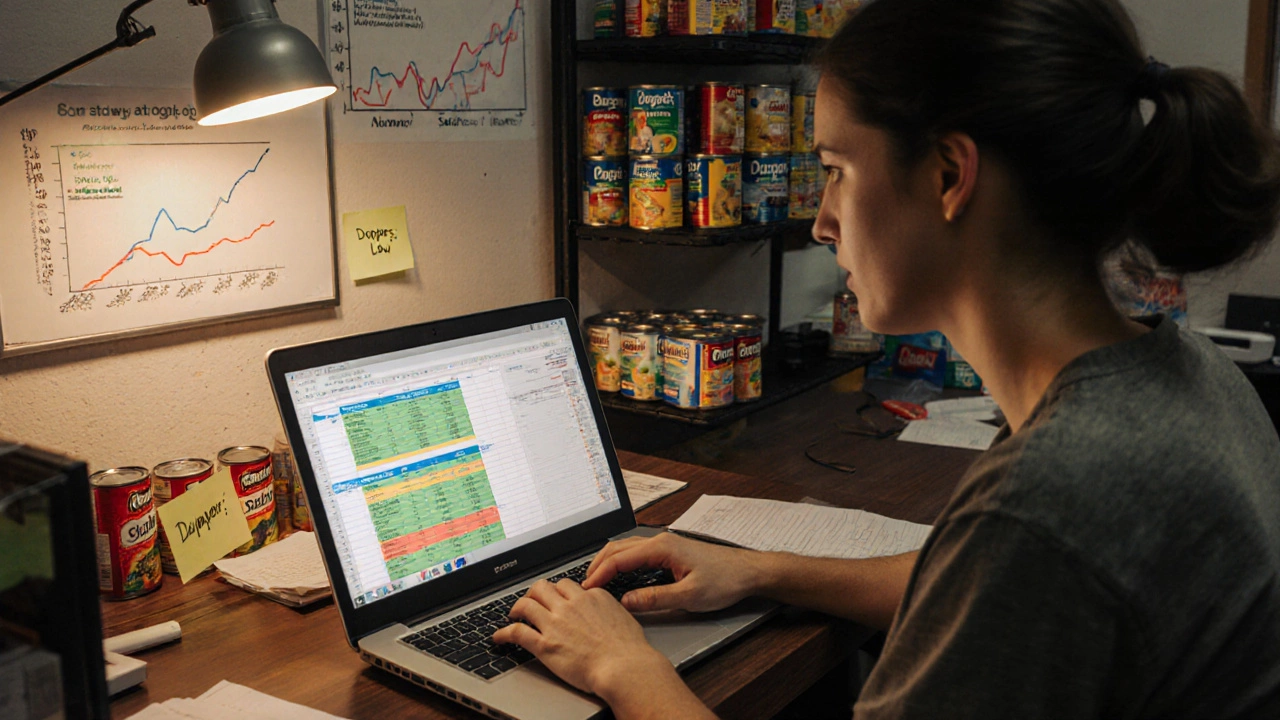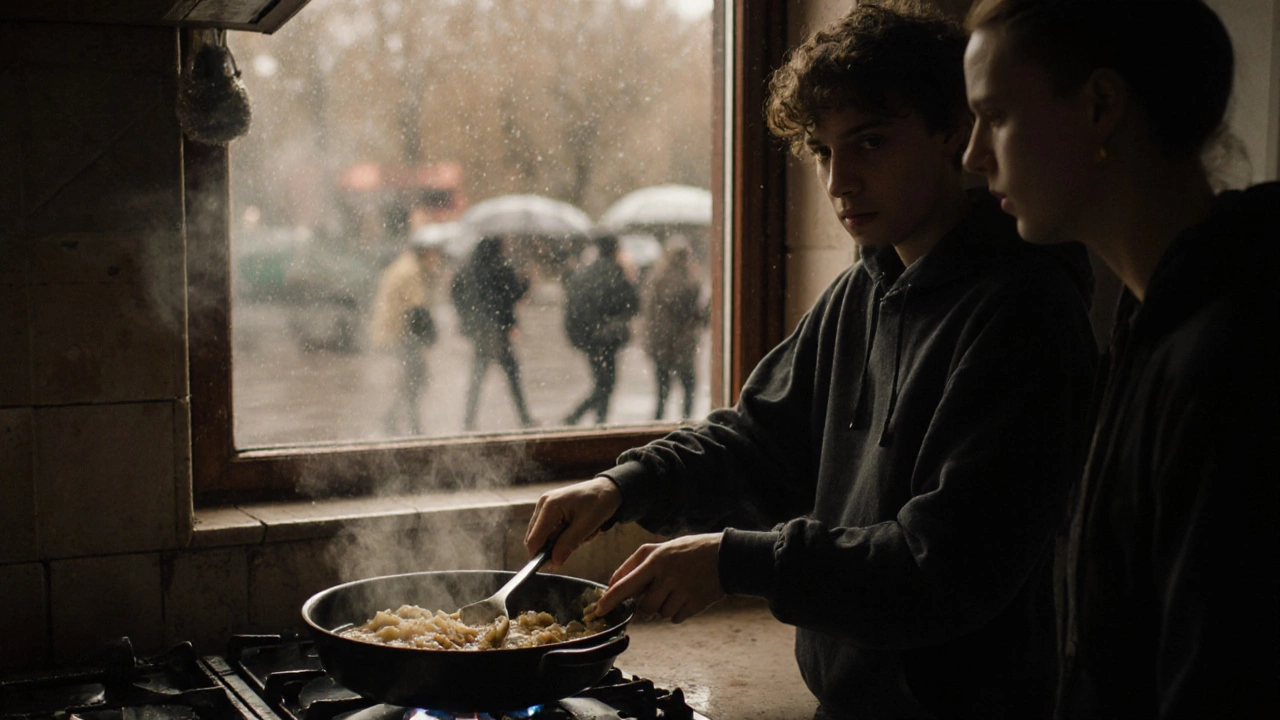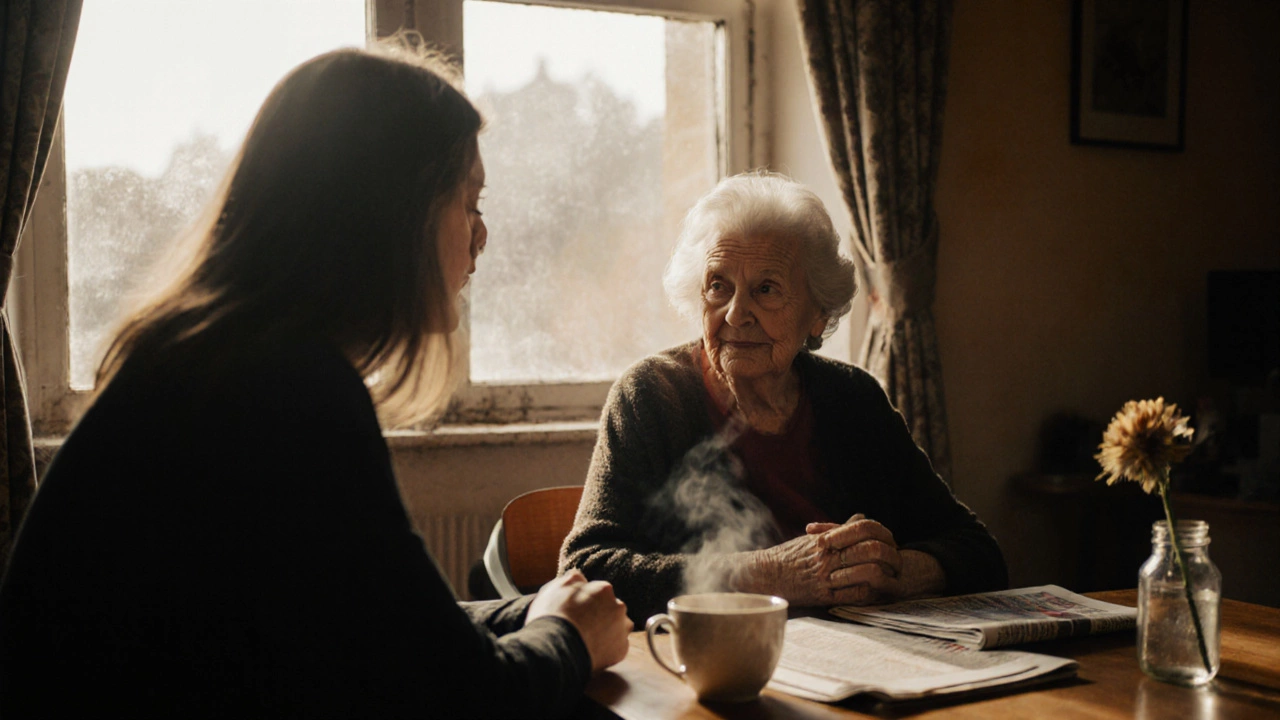Everyone talks about showing up to volunteer. But the real magic? It’s not just showing up. It’s bringing the right skill to the table-something you already know how to do, but never thought could change someone’s day.
You Don’t Need to Be a Hero
Too many people think volunteering means you have to be extraordinary. You don’t. You just need to be good at something ordinary-and use it in an extraordinary way.
Take listening. It’s not flashy. No one puts "professional listener" on their resume. But when you sit with an older person who hasn’t had a real conversation in weeks, and you just let them talk-about their late husband, their grandkids, the weather last summer-they cry. Not because they’re sad. Because they finally feel seen.
That’s the power of a quiet skill. You didn’t raise money. You didn’t build a house. You just paid attention. And that’s enough.
Skills You Didn’t Know Were Valuable
People assume volunteers need to be teachers, nurses, or event planners. But the most useful skills are often the ones you never labeled as "skills."
- Knowing how to fix a printer? You just saved a food bank three hours of paperwork.
- Good at organizing spreadsheets? You helped a shelter track donations so they didn’t run out of diapers on a Friday night.
- Can make a decent cup of tea? You became the person people came to after a rough shift at the homeless drop-in center.
These aren’t "soft" skills. They’re survival skills in the volunteer world. A nonprofit with no IT support? Your ability to troubleshoot Zoom on a 10-year-old laptop is worth more than a grant.
One woman in Glasgow volunteered at a youth center. She didn’t have a degree in counseling. But she could spot when a teenager was about to shut down. She’d say, "I’m making soup. Want to help?" And just like that-conversation started. No pressure. No therapy jargon. Just onions sizzling and a kid talking about his mum.
What You Already Know Is More Than Enough
You think your job skills don’t apply to volunteering? Think again.
A barista from Leith started helping at a refugee support group. She didn’t speak Arabic or Farsi. But she knew how to read body language. She knew when someone needed space, and when they just needed a warm drink and a smile. She started making tea for everyone who walked in-no questions asked. Within months, people came just to see her. Not for paperwork. Not for advice. Just because she made them feel safe.
Accountants? They’re the secret heroes behind charity bookkeeping. Teachers? They don’t need to be in a classroom to help kids learn how to write a CV. A retired mechanic? He taught teens how to fix bikes so they could get to job interviews.
Your skill doesn’t have to be glamorous. It just has to be real.

Why Most Volunteer Programs Fail (And How to Avoid It)
Organizations often ask volunteers to do things they’re not good at. "Can you lead a group?" "Can you fundraise?" "Can you speak publicly?"
That’s the wrong question.
The right question is: "What do you already do well-and how can we use that?"
Too many programs try to fit people into boxes. The result? Burnout. People quit because they’re forced to be someone they’re not.
One community center in Edinburgh tried to train introverted volunteers to host open mic nights. No one showed up. Then they asked: "Who here likes to write?" One quiet woman had been typing up newsletters for free. They gave her a tablet and asked her to record short video messages from seniors. She didn’t speak on camera. She just held up their handwritten notes. Those videos went viral in the neighborhood. Donations doubled.
Don’t force yourself into a role. Find the space where your natural ability fits.
How to Find Your Volunteer Superpower
Here’s how to figure out what skill you bring-without overthinking it.
- Think about the last time someone said, "You’re really good at that." It might’ve been "You always remember birthdays," or "You calm people down," or "You know how to fix anything."
- What task do you do without realizing you’re doing it? Like organizing a messy drawer, calming a crying child, or remembering names?
- What do you do when you’re bored? Do you sketch? Write notes? Rearrange things? That’s your hidden skill.
- Ask someone you trust: "What’s something I do that you wish more people could do?"
Don’t look for what’s impressive. Look for what’s easy for you-and hard for others.

It’s Not About What You Give. It’s About What You Are.
Volunteering isn’t about donating your time. It’s about sharing your presence.
The strongest skill you bring isn’t a certificate. It’s not a degree. It’s not even your ability to raise money.
It’s your authenticity.
When you show up as yourself-flaws, quietness, weird sense of humor, love of lists, fear of public speaking-you give others permission to do the same.
That’s why the person who just sits with someone who’s lonely matters more than the one who runs the gala.
That’s why the guy who fixes the copier matters more than the guy who gives the speech.
That’s why your skill-whatever it is-is enough.
Start Where You Are
You don’t need to wait for the perfect opportunity. You don’t need to train for six months. You don’t need to quit your job.
Look around. What’s broken in your community? What’s quiet? What’s ignored?
Is there a library that needs someone to sort books? A community garden that needs someone to water plants every morning? A senior center that needs someone to read the newspaper aloud?
Call them. Say: "I’m good at X. Can I use that here?"
And if they say no? Find someone else. There are thousands of places that need exactly what you have.
Not because you’re perfect. But because you’re real.
And that’s what changes things.
